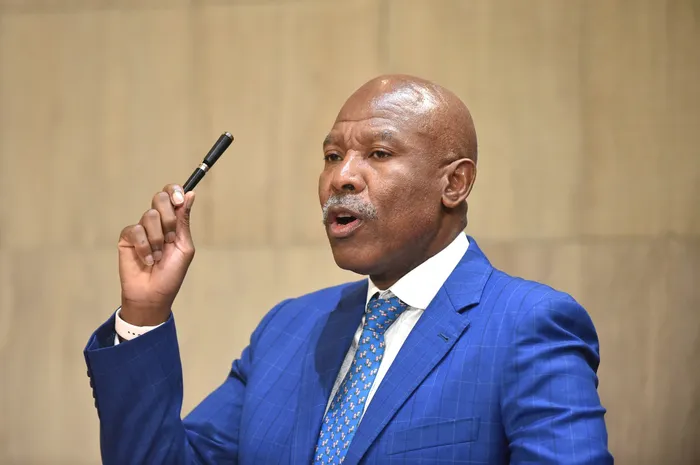SA pushes for faster, cheaper and more inclusive cross-border payments under G20 Presidency
ECONOMY

Speaking at the opening of the second day of the G20 Conference on Cross-Border Payments on Thursday, South African Reserve Bank Governor, Lesetja Kganyago, highlighted the collective responsibility to modernise and integrate regional payment systems.
Image: Thobile Mathonsi / Independent Newspapers
South Africa has reaffirmed its commitment to advancing the G20 Roadmap for faster, cheaper, more transparent, and more inclusive cross-border payments by 2027, as part of its G20 Presidency Finance Track priorities.
Speaking at the opening of the second day of the G20 Conference on Cross-Border Payments on Thursday, South African Reserve Bank Governor, Lesetja Kganyago, highlighted the collective responsibility to modernise and integrate regional payment systems.
“Cross-border payments are the lifeblood of international trade, investment, capital and remittance flows and economic integration. Despite their critical role, cross-border transactions remain far too costly, slow and opaque, especially in emerging markets and developing economies," Kganyago said.
"As part of South Africa’s G20 Presidency, we have placed cross-border payments high on the Finance Track agenda. Our goal is to enrich the global conversation with regional insights and to foster collaboration that translates ambition into action and tangible outcomes."
Kganyago said South Africa has worked closely with the Financial Stability Board (FSB), the Bank for International Settlements’ Committee on Payments and Market Infrastructures, and other G20 members to drive implementation of the G20 Roadmap launched in 2020.
While meaningful progress has been achieved, Kganyago cautioned that challenges persist — especially in sub-Saharan Africa, where fragmented infrastructure, poor interoperability, and data limitations continue to constrain efficiency and inclusion in cross-border payments.
He said the region is, however, witnessing promising innovation through fast-payment systems and fintech solutions that could transform the landscape.
“The region is seeing innovations in fast payments and fintech that may well prove transformative. The world is moving fast in this area – and Africa will be left behind unless we catch up," Kganyago said.
"It is important that we lift the game and make sure that our own local payment systems are fit for purpose and interoperable with the rest of the continent and beyond."
Delegates at the conference are focusing on four key themes: understanding user needs and regional dynamics; addressing policy and infrastructure barriers; fostering trust and innovation; and improving data and measurement to track progress.
Kganyago emphasised that policymakers must act decisively by strengthening regional cooperation, modernising regulatory frameworks, and investing in interoperable payment infrastructure.
He also stressed the need for inclusive solutions, particularly for communities that depend on remittances and small-value transfers.
“Together, we can ensure that cross-border payments serve as a catalyst for inclusive growth and regional integration in sub-Saharan Africa and beyond,” Kganyago said.
This comes as the Financial Action Task Force (FATF) will on Friday announce whether South Africa will be removed from the global financial crimes greylist, a move that could reshape the country’s financial credibility and investment appeal.
The FATF greylisting process ensures countries strengthen their anti-money laundering and counter-terrorist financing (AML/CFT) frameworks to protect the global community.
South Africa was greylisted in February 2023 due to gaps in its regulation and policing of these serious cross-border financial crimes.
Greylisting subjects countries to enhanced scrutiny, increasing transaction costs, lengthening payment processing times and raising compliance barriers for international banks dealing with SA entities.
Bianca Botes, director at Citadel Global, said on Thursday that the likelihood of South Africa being removed from the greylist appears substantial but not guaranteed, with regulators optimistic that SA has reportedly made substantial progress, having completed all 22 action items by June 2025.
“If SA succeeds in being removed from the greylist, it will restore faith in the current SA government’s ability to coordinate complex multi-agency reforms, deliver on international commitments and prove that its institutional capabilities can inspire confidence beyond financial regulation. It ultimately shows a political commitment to maintaining international standards despite domestic pressures and this will be very good for SA’s standing in the global financial markets,” Botes said.
“Ultimately, achieving delisting signals that SA is committed to maintaining robust financial standards and is a credible and attractive destination for both domestic and international investment. What will be important in the future is to keep demonstrating that SA is serious about the independence of its institutions, the prevention of state capture, the prosecution of financial crimes, including corruption and the continued modernisation of its financial systems and regulatory compliance capabilities,” she explains.
BUSINESS REPORT